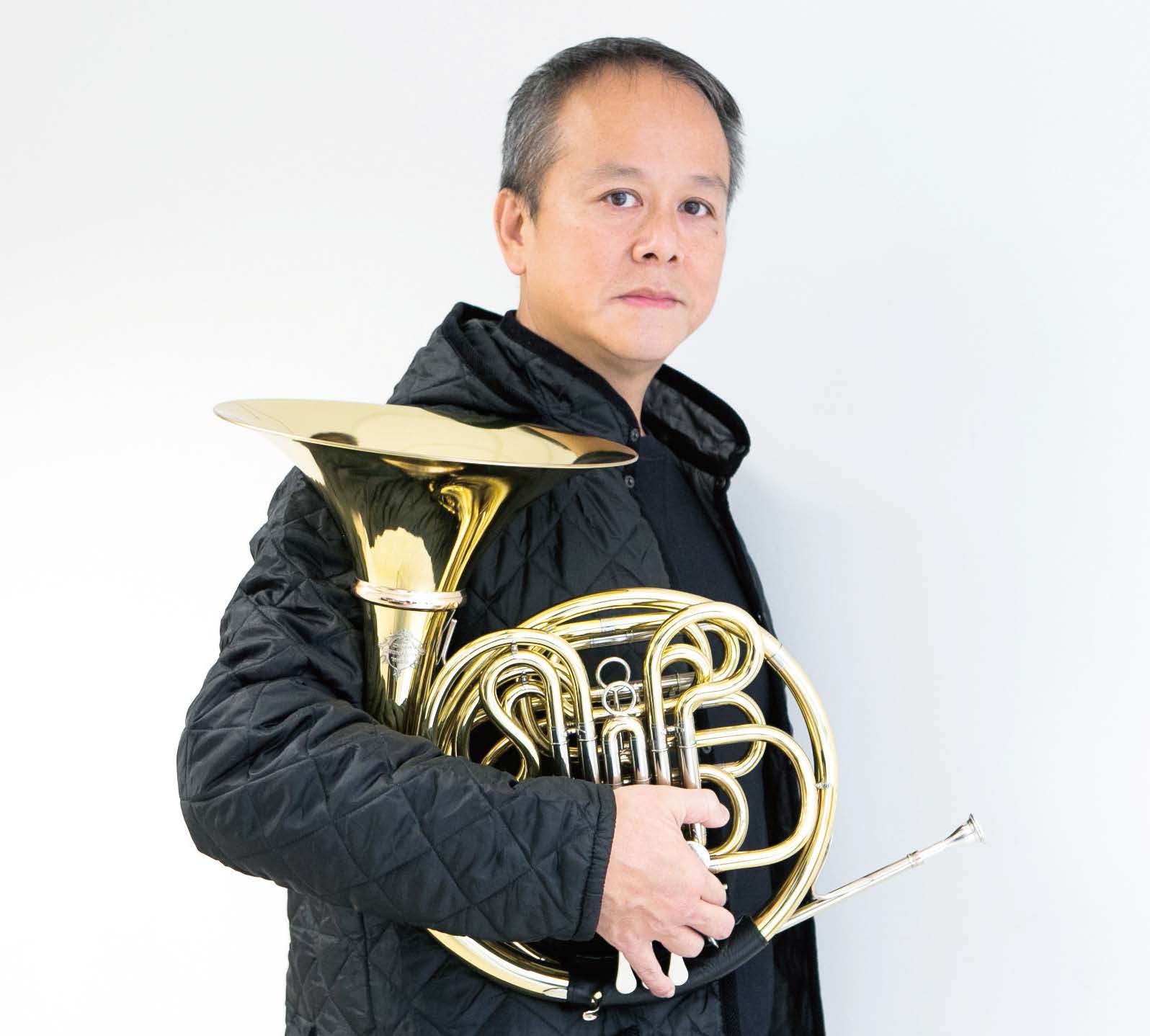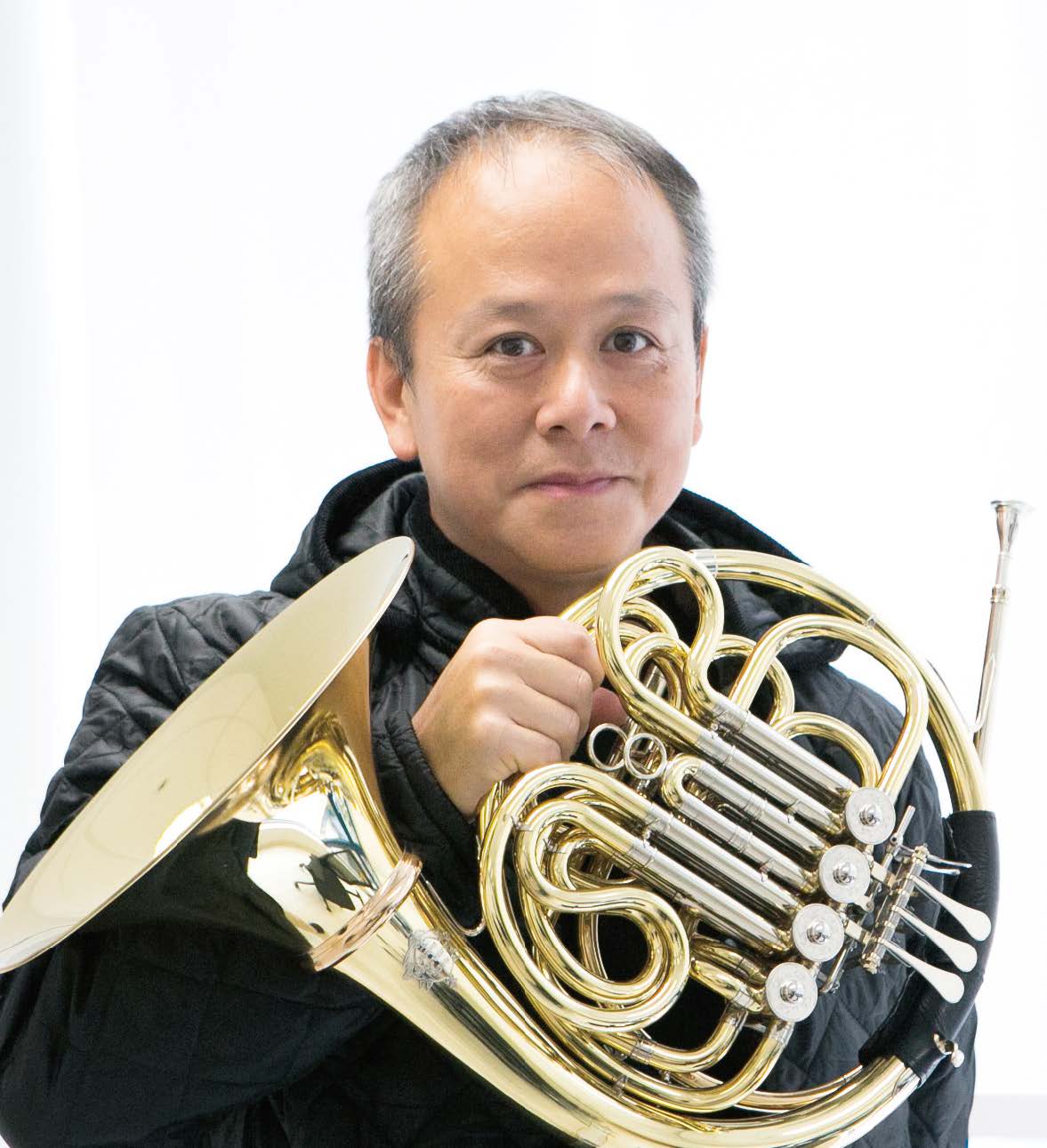A passion for music and music education #3 of 7
June 2, 2020
We sit with accomplished musicians heading the CAIS Specialized Orchestral Training Program and ask them to take us to the beginning of their musical journeys, what inspired them, how they nurtured their passion and talent for music, their professional careers and what led them to teach music to others.
Hornist / Trumpetist – Chi-chung Chow
Vinod Khiatani (VK)
Chow Chi Chung (CCC)
Let’s start with early influences in music training.
Sure. I was 7 years old when I started playing the Horn. Actually, I did not choose the instrument nor did I come from a musical family. The Hong Kong Government wanted to develop the interest in music among youth and started an initiative to scout for students from local schools that they could gather and provide quality music instruction. They came to my school and interviewed me and suggested that I try the Horn. And I did and enjoyed the experience and stuck with it. It was not tied to my school in any way but I was glad for the opportunity. I was able to travel to different countries with the team and thoroughly enjoyed it. At 14 while I was in middle school, the Hong Kong Academy of Performing Arts (APA) had just opened its door and I was selected to join in their Junior Program. They were looking for talented students and by that time, I had spent several years playing the Horn. When I graduated from High School, I enrolled in the Senior Program at APA and spent the next 4 years there. In 1993, I was recruited to be the associate principal Horn for the Korean Symphony Orchestra which is under the Korean Broadcasting System. In 1995, I became the youngest principal Horn player in the orchestra. It was a wonderful time and I spent 7 years in Korea until I was recruited to play in the Guangzhou Symphony. After a year there, I came back to Hong Kong and played with the Hong Kong Sinfonietta followed shortly by the Hong Kong Philharmonic where I am to this day.
It seems like you were always in the right place at the right time.
Yes, it seems like it. The common theme in the early years was all the institutions that I was associated with were just beginning to form and grow and they needed a Horn player and I was available so I was recruited. I enjoyed these start-up experiences until I returned to Hong Kong. Here the effort to develop talent had taken off and Hong Kong boasted a well-developed musical culture. At that time, I was married and wanted to settle down preferably in Hong Kong. So I came back and waited for the opportunity of an opening with the Hong Kong Philharmonic. It has always been my dream job. There was a worldwide audition for talent to join the Philharmonic and I auditioned for the position. I was happy with my performance and I thought at that time that if the Philharmonic did not choose me, it would be their loss. I was just confident that I had done my best and I was overjoyed when I was notified that I was selected. I have been there ever since.
And you have only played this one instrument throughout?
Yes, I didn’t know anything about musical instruments and may be given the choice, I would have chosen to learn the violin as that is the popular choice among parents in Hong Kong. But when the Hong Kong music office interviewed me, they carefully observed my physique, my height, weight and even my lips and concluded that I will learn to play the Horn. So I did. Incidentally, I did not know at that time but this particular instrument has the reputation of being the most difficult instrument to play in the orchestra which explains why the demand to find a player was so high and the players so few. For example, in the Korean Symphony Orchestra, I was the only external candidate recruited to play the Horn while all the other players were Korean.
What lead you to teach?
Teaching also came naturally. I thought that there may be students who do not know exactly what they want to play but I could help them develop an interest in music and if they keep at it, they would stand out. I did not start with a passion and pursued it but rather I allowed the passion to develop after I started getting good at it.
That is a good message for our students to read that passion develops as we become competent in our skills.


